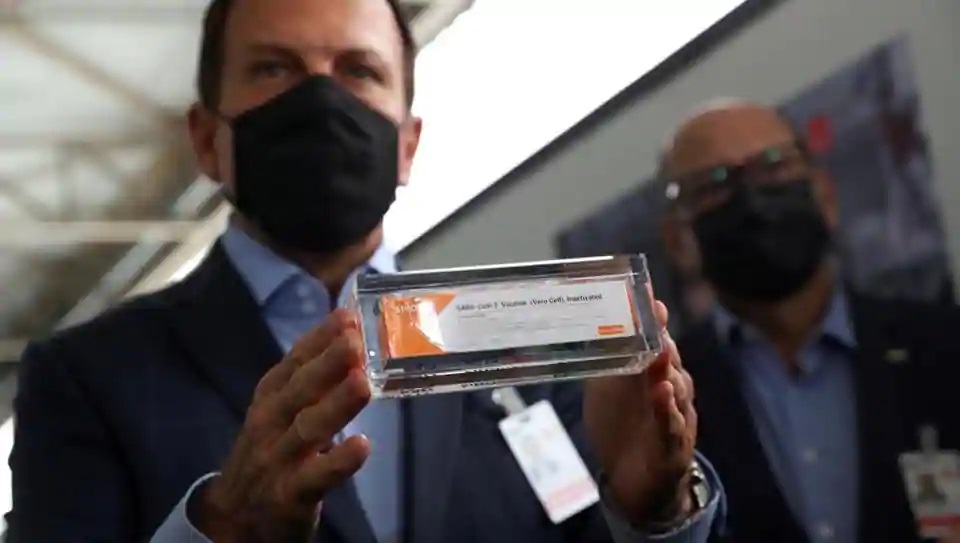Sau Paulo governor Joao Doria in an interview on Thursday said Sinovac could be rolled out without approval from the national health regulator, in comments described by health experts as ‘empty threat.’

FILE PHOTO: Brazil’s Sao Paulo state governor, Joao Doria, and director of Instituto Butantan, Dimas Tadeu Covas, hold boxes of the China’s Sinovac vaccine against the coronavirus disease (COVID-19) as a cargo plane containing the vaccines arrives at Sao Paulo International Airport in Guarulhos, Brazil November 19, 2020.
Sao Paulo could roll out a COVID-19 vaccine developed by China’s Sinovac without approval from the national health regulator, Governor Joao Doria said in an interview on Thursday, pressuring Brasilia to greenlight the vaccine.
Health experts said Doria’s comments were an empty threat, as no drugs or vaccines can be used legally in Brazil without clearance from health regulator Anvisa, which pushed back against the comments. Still, his statements reveal growing tensions over the vaccine rollout in Latin America’s biggest country, with the world’s second-highest COVID-19 death toll.
Critics of President Jair Bolsonaro argue he is threatening the independence of Anvisa with political appointees to gain leverage over governors and other rivals.
In a video interview on the news website Metropoles, Doria said Sao Paulo could use the vaccine from Sinovac Biotech Ltd based on approval from regulators in other countries.
“Today, there is suspicion that Anvisa could suffer political interference from the presidency and could fail to be an independent agency as it should be, as it must be,” he said.
He added the state would consider the vaccine appropriate for use if approved by authorities “in the United States, in Europe and, above all, in Asia.”
In a statement, Anvisa said that was impossible.
“It is important to clarify that the tacit approval of vaccines by other agencies … is not foreseen in the law,” the regulator said. “Even after it is approved in another country, Anvisa’s approval is necessary.”
Doria, a staunch opponent of Bolsonaro, has already ordered the construction of facilities to produce the Sinovac vaccine, which is currently undergoing late-stage trials in Sao Paulo and elsewhere in Brazil.
Bolsonaro, a strident China critic, has frequently dismissed the Sinovac vaccine, known as Coronavac, saying he is concerned about its “origin.”
So far, the federal government’s principal bet has been on a vaccine being developed by AstraZeneca, though federal health officials have also held discussions with other vaccine developers, such as Johnson & Johnson and Pfizer Ltd . (Reporting by Eduardo Simões Writing by Gram Slatteryand Gabriel Stargardter Editing by Brad Haynes, Tom Brown and Aurora Ellis)

